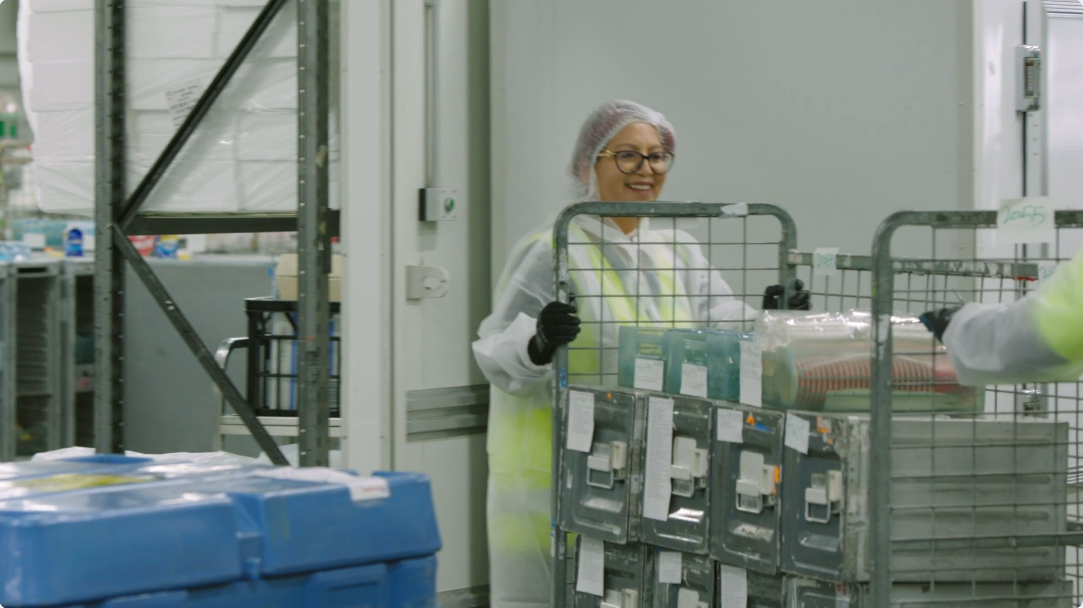As I mentioned in my previous blog piece, there are several recruitment trends that will define 2023. One that is obviously going to leave its mark is the rapid progress and use of AI, which I will focus more specifically in this article. As we explore this space, there are various artificial intelligence (AI) solutions that may be integrated into your business to improve the user experience for all major stakeholders in the recruitment process.
There are numerous AI technologies available for various industries and applications, and what counts the "best" will depend on your organisation's specific needs and goals. Here’s some of the most utilised AI technologies in recruitment:
- Chatbots: Chatbots can automate initial candidate screening and answer common queries, allowing recruiters to focus on more difficult jobs.
- Resume Parsers: Resume parsers scan and analyse resumes fast to find critical information such as skills and qualifications, saving recruiters time and enhancing accuracy.
- Candidate Matching and Recommendation Systems: These tools use AI algorithms to match candidates to job requirements, saving recruiters time and effort and boosting the likelihood of a successful recruitment.
- Video Interview Platforms: AI is used to assess candidate responses and provide feedback on characteristics such as tone, body language, and communication skills in video interview platforms.
- Predictive Analytics: Predictive analytics can help recruiters make informed judgements and improve their hiring processes by providing insights into candidate performance and success.
Indeed, AI tools can help to expedite and optimise the hiring process for all stakeholders, saving time and effort while enhancing hiring quality. There are numerous AI technologies available for various industries and applications so here are some examples of the more popular AI applications used and their functionality:
- HiredScore is AI-powered recruitment platform that matches candidates to job criteria and predicts their likelihood of success in the role using machine learning algorithms.
- Mya Systems is a chatbot that automates basic prospect screening and pre-employment tests, allowing recruiters to focus on more difficult jobs.
- Entelo is an AI-powered recruitment tool that identifies and predicts the best-fit individuals for a post based on characteristics such as abilities, qualifications, and work history.
The speed at which new solutions and market entrants are popping up can be overwhelming. When selecting an AI tool, it is critical to analyse your organisation's specific needs and to select a solution that corresponds with your beliefs and goals and engage a market leader to help you design the best solution for your needs.
Another AI option that was non-existent a month ago but is currently buzzing throughout the world is ChatGPT. For those who may have missed it, OpenAI's language model was released as a beta version late last year, and aside from having some personal fun with ChatGPT from writing a theme song for Chandler Macleod and our BestFit™ methodology, pondering what Plato would think of today's republic, spending some time utilising it as a personal coach, I began to research how this AI can be applied to the recruitment process.
ChatGPT is morphing into many uses and clearly it can improve and streamline the recruitment process in a variety of ways. In its very basic format, you can teach it to write job ads from any job description and if you feel adventurous add a touch of tone, say pirate theme, that will make your ads as unique as your imagination will take you. In a more advance approach, ChatGPT can be used to create chatbots that can automate early candidate screening and answer typical enquiries, allowing recruiters to focus on more sophisticated jobs.
It can also be used to create algorithms that assess candidate responses and give feedback on things like communication skills, tone, and attention to detail. It may be developed to match candidates to job needs based on criteria such as skills, experience, and work history.
ChatGPT can be used to create predictive analytics that forecast candidate performance and success, delivering useful information to recruiters to help them make hiring decisions. Overall, ChatGPT can be used to automate and streamline many areas of the recruiting process, saving recruiters time and effort while increasing the candidate experience, clearly there is no limit it it only early days.
When you evaluate the growth of AI beyond the benefits and the tremendous revolution it is already causing in the workplace, you must consider the potential displacement of task or job redundancy and the threat it can pose to peoples’ career.
Work is an important element of life because it gives us a sense of purpose, accomplishment, and financial security. As AI becomes more integrated into the workplace, it has the potential to alter our perceptions of work and the abilities that are valued.
Having the benefits of our Chandler Macleod Consulting division, I discussed this topic with our in-house organisational psychologists and it became evident that it is critical to evaluate how AI will effect the workforce and the business as a whole.
On one hand, AI has the potential to increase efficiency and productivity by freeing up employees' time to focus on more complicated and creative activities, however concerns about job displacement and the need for people to adapt to new skills and technologies may exist.
It is critical for firms and leaders to address these issues and support employees as they adjust to the changing nature of work. This can include offering opportunities for training and growth, clear communication about the role of AI in the company, and explicit rules for dealing with job displacement.
Moreover, the ethical implications of AI in the workplace must be considered, such as guaranteeing fair and unbiased decision-making, preserving employee privacy, and ensuring that AI is utilised in ways that correspond with company values and goals.
Overall, the incorporation of AI in the workplace brings both obstacles and opportunities, and it is critical for enterprises to handle it holistically and strategically. The last time this amount of change occurred in the workplace environment was when the typewriter was replaced by the computer, which terrified many professionals at the time, but here we are today thriving and about to enter a new paradigm - the new dawn of AI!













